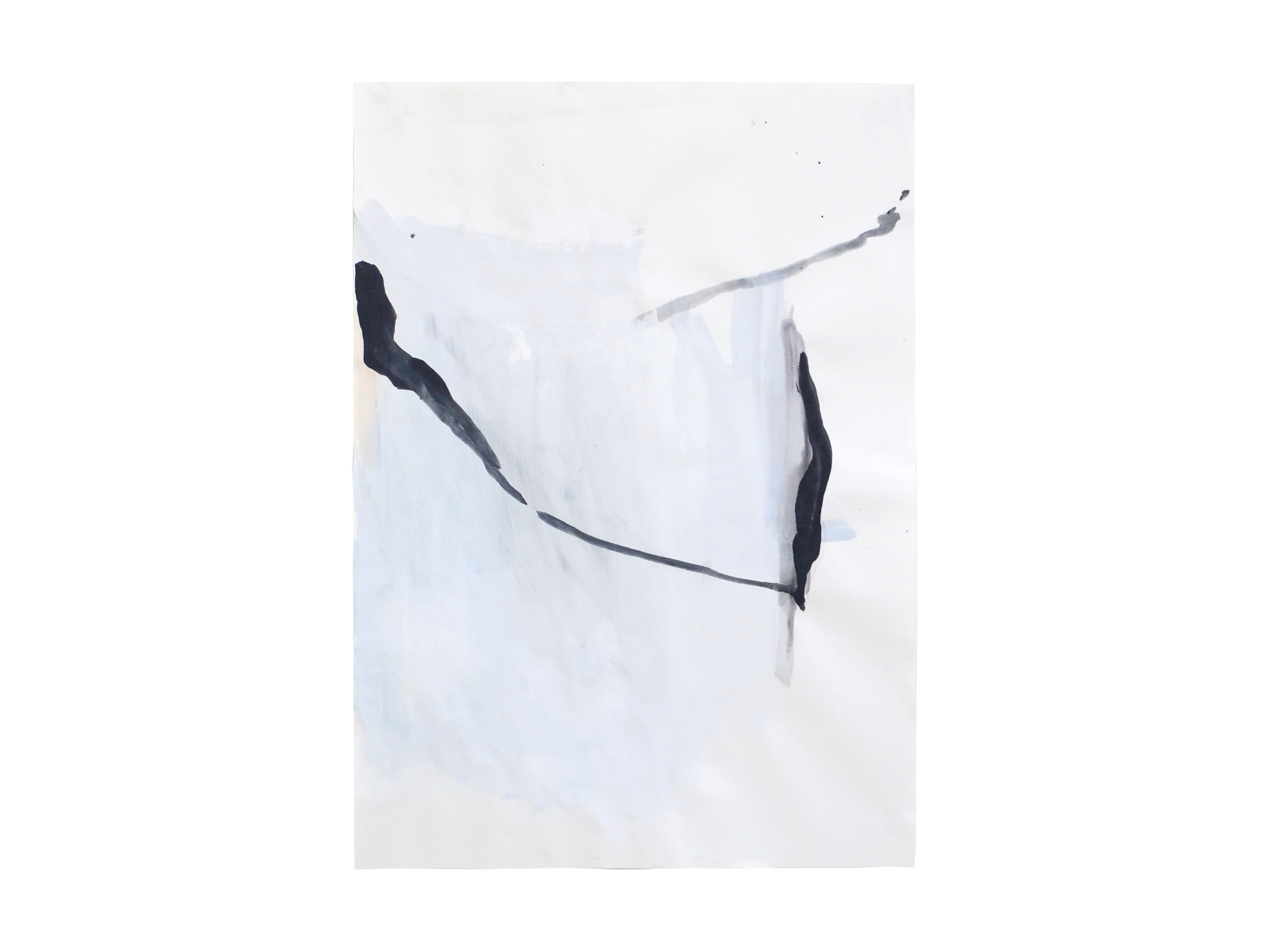The question of war and peace has preoccupied humanity for millennia. When the Greek comic playwright Aristophanes wrote his play ‹Peace›, he was really advocating against war. Actually, we might expect that civilisation, through its moral and technical development, would learn to avoid devastating wars, but this is not the case. War has taken a new and crueller form since the twentieth century. In this context, it is important to reflect on the sources of war and to understand why the anthroposophical movement has been a peace movement from the beginning in all its endeavours.
On the 14th of August, 1898, the first Hague Conference was launched. Czar Nicholas II’s foreign minister wrote a letter to Pope Leo XIII reporting on the plan for an international conference to «put an end to the incessant armaments and to seek ways and means to prevent the calamities which threaten the whole world». This initiative led to further conferences and projects to create the conditions for world peace. This gave rise to the ‹Permanent Court of Arbitration› in The Hague, a new institution to prevent wars, and later to the Peace Palace where the Court was to have its seat. The Peace Palace in The Hague, whose ornaments are dedicated to Irene, the goddess of peace, was inaugurated in 1913. That year also saw the laying of the foundation stone for the First Goetheanum, another building with worldwide pacifist aims. But these important initiatives did not prevent the First World War from breaking out the following year, followed by the Second and all the other wars that followed each other and still rage today. Afghanistan, Iraq, Yugoslavia, Syria, Yemen, Ukraine …
The feeling of powerlessness can be overwhelming in the face of the unstoppable machinery of violence, hatred and destruction. War – or even just the threat of war – confronts us with existential questions. It raises the question of our humanity. Apart from the justifications or condemnations of this or that party, war poses a question to all of humanity. It is of course important to examine the sources of conflict, such as the developments in diplomatic relations, the history of state-building, or even the differences between cultures and religions, but this does not answer the question of war from a general human perspective. If we take the standpoint of humanity as a whole, it is no longer the apportionment of blame that interests us – we can all feel responsible and have a sense that there are deeper forces at work that hold the potential for war and of which external war is only a symptom.
Seeds of War
In March 2022, when war broke out in Ukraine, the Italian political scientist, pacifist and human rights activist Riccardo Petrella wrote: «The spirit of war is inherent in the dominant economic system. The financialised market economy has educated us for war, to think, to participate and to take part in wars: for oil, wheat, computers, media, containers, vaccines, smartphones, cars, rice, bananas, universities; for networks, patents, AI, space. War is in our heads, in variable forms and words: competitiveness, profitability, market leadership, No. 1, market conquest, resilience, adaptation, innovation…»1
As early as 1933, the French philosopher Simone Weil, who was active in revolutionary Marxist circles and saw totalitarianism and fascism on the rise, presented a similar analysis in her ‹Reflections on War›. For her, too, modern society is built in its basic structures in the service of war. The oppression of the working class by the machinery of capitalist industry reaches its climax in war. Even before it rages on battlefields, the seeds of war are planted in modern societies and their economic life, in the way people organise themselves and shape their interactions: «Modern war is absolutely different from everything that was called by that name under previous regimes. On the one hand, war only prolongs that other war called competition, which makes production itself a mere form of struggle for supremacy; on the other hand, the whole of economic life is at present oriented towards a future war.»2
In 1946, the Russian philosopher Nikolaus Berdyaev in his book ‹Slavery and Freedom› pointed out the war potential not only capitalism but also of nationalism, which is still strongly anchored in minds and state structures today: «The moment the power of the state and the nation is proclaimed as the highest value, war is already practically declared, everything is already prepared for its possibility, both intellectually and materially, and war can break out at any moment.» But he also draws attention to a ‹psychological atmosphere›: «The capitalist regime will always be a cause of war, and behind governments with pacifist tendencies there will always be traders in guns and asphyxiating gases who prepare wars. War has as its precondition a certain psychological atmosphere which can be created in various, often imperceptible ways. Even the fear of war can create an atmosphere that favours a policy of war. Fear and anxiety never result in anything good.»3
The atmosphere of war through competition and power struggles pervades capitalist society, especially when nationalist tendencies are added that regard the state to be the highest value. These social factors are prevalent almost everywhere on the globe today. Apart from external circumstances, it is about how people think, what is going on in their minds, in their hearts and in the atmosphere of human interaction. As a result, we are thrown back on ourselves, on our inner lives.

How Can We Think About Evolution?
In the autumn of 1905, Rudolf Steiner gave two public lectures in Berlin on the subject of ‹war›.4 Surprisingly, he does not start with social questions, but turns to the question of the natural sciences. He draws attention to the fact that the concept of the ‹struggle for existence› has permeated our entire conception of the evolution of living things since Darwin. According to this conception, the ‹struggle for existence› would be the most important driving force of evolution. Haeckel, a representative of Darwinism, accordingly saw war as a cultural lever: struggle makes the strong and the weak are forced into extinction, which is a blessing for culture. And so we move from the natural sciences to the social question. This view, shared by not a few, has been called ‹social Darwinism› by its critics. Such an understanding of the war of all against all forms an atmosphere that permeates the inner life of human beings.
As a counterweight to this concept of development, Steiner draws attention to a Russian zoologist named Karl Fedorovich Kessler who held the opposite view: not the ‹struggle for existence› but ‹mutual aid› was the lever of evolution. Kessler based his theory on his research on and observations of the vertebrate fauna which he had carried out in the Ukraine, on the Dnieper, on the coast of the Azov and Black Seas and published in his book ‹Natural History of the Provinces of the Kiev Educational District›. In his opinion, the creatures that develop best are those that can help each other. This approach – cooperation instead of competition – has developed into becoming a general school of thought.5
With his theory of evolution based on ‹mutual aid›, Kessler influenced social thought through the Russian geographer and anarchist Pyotr Alexeyevich Kropotkin who was also quoted by Steiner in these lectures. Kropotkin founded libertarian communism, formulated in particular in his work ‹Mutual Aid: A Factor of Evolution›. His political commitment led to him ending up in prison in Russia and France. Kropotkin’s philosophy achieved world fame and he became one of the fathers of anarchism, but it was in Ukraine that his ideas came closest to concrete implementation between 1917 and 1922 through the libertarian communist Nestor Makhno and his movement, the Makhnovshchina. The idea was to build everything on mutual aid by abolishing the unitary state and introducing federalist structures, autonomous councils in which horizontally freely cooperating communities were united. But this attempt could not resist the great powers that surrounded it for long.
Mars and Mercury
Was it not Heraclitus who said that war is the father of all things? The struggle for existence that underlies war can be seen as a necessary formative principle within evolution. Just as the child learns to say «No!» and to face the world, to assert themselves as an individual, humans have gone through a process of self-assertion and individualisation in order to experience their ‹I›, their moral autonomy and their freedom. This principle of confrontation, which is necessary for a phase of evolution, relates to the powers of Mars, the god of war. But as the bearer of the ultimate principle of war, the war of all against all, he demands at a certain stage of his development that another principle be added, which gives this development a new impulse. This new principle is not based on confrontation and struggle, but on the space between beings, the intermediate space. This principle is associated with Mercury, the messenger god, the god who connects and promotes flowing movement and communication. This principle is also connected with dialogue, interaction and exchange as well as with medicine and healing because it helps to overcome one-sided impulses, dead ends of isolation, and closure as well as solutions for confrontations and conflicts.
This polarity can be imaginatively seen extending as far as into the scientific conception of matter as it developed in the twentieth century: wave-particle dualism. On the one hand, matter can be understood as particles, as smaller and smaller units, separated from each other and centred in themselves, which fit together like building blocks and form the material world. These are the formative forces of the past. But at the same time, the same material reality can also be described in terms of waves and oscillations. That is where perspectives and fields of life open up. Waves and oscillations are expressions of interactions and are located in an intermediate space that consists of intervals, of musicality.
Every problem can be approached in a warlike way: through the principle of confrontation, which implies identifying a particular enemy figure (e.g. another person, another state or even a virus) and declaring war on it in order to achieve victory. Conversely, it is possible to pose the problem in the form of a dialogue, an interaction. In this situation, there are not two hostile camps but potential dialogue partners who must be able to find a form of understanding and, through this interaction, rise to a higher level where each participant can find the place that is right for them. We are currently living at a turning point in the evolution of earthly humanity at which the old forces of Mars continue to work and the new principle of Mercury is slowly coming towards us to make a future possible. This turning point is evident in the gap between the great ideals of peace that stir the hearts of human beings and the sad reality of violence that continues relentlessly.

Humanity Is One
How can we work for a development that overcomes war? Political initiatives and institutional reforms are certainly essential but it seems important to first go to the root of the problem: the inner life of the human being, the spiritual life.
To find a way out of this ‹struggle for existence›, Steiner refers in his lecture mentioned above to the pacifist and fraternal ideal of the spiritual-scientific movement he promoted. Indeed, the first principles of the Theosophical Society founded by Helena Blavatsky, which he represented at the time, were: «To show the unity of all life as a fact of nature and to form a nucleus of universal brotherhood», and further: «To promote through the study of ancient and modern religions, sciences and philosophies a better understanding among all peoples and the realisation of the essential unity of all life.»
However, the experience of this unified soul of humanity, that reality on which the ideal of universal brotherhood is based, is not innate in the human being but must be consciously developed. It is necessary to create a space in which this consciousness can be intensified in inner experience, it is necessary to «found a fraternal alliance across the whole earth, without regard to race, sex, colour and so on. This is the recognition of the soul that is common to all humanity.»6 Thus Steiner. This project does not wish to fight for a cause or directly advocate reforms but to develop the inner life and change consciousness so that fraternity first arises in the souls of people: «We do not fight, we do not fight against war or anything else, because fighting does not in any way lead to higher development […] Here we must do more than only speak of peace, make peace our ideal, conclude treaties, yearn for arbitration, we must cultivate the spiritual life, the spiritual, then we will call forth in ourselves the power that extends over the whole of humankind as the power of mutual aid.»7
The history of the Theosophical Society and the Anthroposophical Society up to their most recent developments shows that this path is laden with trials and tribulations, and that it involves real work, even if it is inner. And this striving for fraternity, this culture of fraternity does not only concern the Theosophical Society or the Anthroposophical Society; it is a principle that concerns all communities and networks that arise in view of this ideal of the future based on ‹mutual aid› to overcome the old forms of society marked by the principle of the ‹struggle for existence›, by competition, coercion and war. It is not a matter of fighting against war but of creating counterweights. These kinds of communities that strive for this superior ideal form spaces from which real power springs, for, according to Steiner, «magicians are the people who work together in fraternity because they draw higher beings into their circle. There is no longer any need to invoke the machinations of spiritualism when people work together in a community with brotherly love. Higher beings manifest themselves there. If we give ourselves up in brotherhood, this giving ourselves up, this realisation in the whole is a steeling, a strengthening of our organs.»8
Is it not the case that the principle of community building is the only way out of the feeling of powerlessness that assails us in a world dominated by the ‹struggle for existence›? It is obvious that when dealing with difficult material tasks, the number of those who help each other is crucial. However, this is less obvious when it comes to a spiritual, inner task. Perhaps it is precisely this illusion that needs to be overcome today. For we necessarily need others for this spiritual development. Spiritual ‹mutual help› becomes the source of new strength!
Friendship in Dark Times
The ideal of human fraternity and the awareness of this unified soul of humanity, which unites all people without exception, seeks to be realised in practice, in daily reality. As the philosopher Vladimir Solovyov describes in his book ‹The Meaning of Love›, universal human love must be realised in concrete relationships between specific people, otherwise, it remains only an unrealised potential. Solovyov sees the partnership of the married couple as the most suitable interpersonal space for the realisation of spiritual love. However, every real interpersonal relationship forms such a privileged space for the realisation of love.

Hannah Arendt points to the conditions necessary for this interpersonal space. In a speech published in 2018 entitled ‹Friendship in Dark Times›, which she gave in honour of Lessing, she describes the creative moment of human encounter in its cosmological scope. When the world has become inhuman, people have no choice but to seek each other out again. And when people manage to come together in these «dark times», the focus is on the ‹word›, the ability to engage in dialogue and exchange ideas about the world. She even thinks that the world only exists where two people can exchange ideas about it. When it is no longer possible to exchange ideas about the world, then the world disappears.
«For the world is not already human because it is made by human beings, nor does it already become human because the human voice is heard in it, but only when it has become the object of conversation. However much we may be affected by the things of the world, however deeply they may stimulate and excite us, they only become human for us when we can discuss them with our peers. What cannot become the subject of conversation may be sublime or terrible or uncanny, it may also find a human voice through which it resounds into the world; it is just not human. Only by speaking about it do we humanise what is going on in the world, like what is going on inside ourselves, and in this speaking we learn to be human.»9
Here fraternity is not enough and that is why Hanna Arendt says that we need ‹friendship›. A fraternity in which conversation is impossible or whose participants adhere to universally irrefutable truths is inhumane. Truth must be called into question in every human encounter. In a truly human space, all pre-set truths disappear and what counts is the truth that the other brings. What matters lies not in one truth, but in the encounter of many truths. And so we enter a real interpersonal space, a ‹spiritual friendship›, the conditions of which Steiner also describes: «To be tolerant still has a different meaning in a spiritual-scientific sense from what is usually understood by it. It means also respecting the freedom of thought of others […]. We should grant not just freedom of the person, but we should value complete freedom, even the freedom of another’s opinion.»10 This is meant in terms of practical life. It is too little practised in today’s world.
The Anthroposophical Society and its School of Spiritual Science can serve as a training space for enhancing this interpersonal skill. We need this capacity for dialogue which consists in making the world and ourselves more human. For this we need other people and spaces for dialogue in which this human substance can be produced, just as honey is produced in the beehive. This skill of humanising dialogue is urgently needed in the present world: this is what war ‹tells› us. War begins where dialogue ends. When diplomatic channels are interrupted, war breaks out. The end of dialogue is the beginning of war – and only dialogue can end war.
Thoughts of Love
In 1933, the ‹International Institute of Intellectual Co-operation› invited prominent personalities to engage in a dialogue on the topic of ‹war› with a partner of their choice. This resulted in the correspondence between Albert Einstein and Sigmund Freud, which was published under the title ‹Why War?›. More than the content of the correspondence, what impresses on reading it is the attitude with which these two eminent personalities approached the subject. With regard to the question of war, the two intellectuals feel themselves addressed as human beings beyond their field of expertise – as human beings with regard to a question of general humanity that calls them to great humility. After some reflection on the possible external or institutional causes of war, they feel compelled to ask the question about the human psyche. What can be the cause in humans of the inclination to war? «How is it possible that the masses […] can be inflamed to the point of frenzy and self-sacrifice? The answer can only be: there lives in the human being a need to hate and to destroy,» Einstein writes.11 Freud, referring to his research on depth psychology, admits that there is such a destructive instinct but that it is accompanied by a second instinct. By strengthening this second instinct, forces could unfold that overcome the tendency to hate and destroy. This is love, which he calls ‹eros›: «If the readiness for war is an outflow of the destructive instinct, it makes sense to invoke against it the antagonist of this instinct, eros. Everything that establishes bonds of feeling among humans must counteract war.»12
Another dialogue also asks about love. In 1909, on Gandhi’s initiative, an exchange of letters began between the Hindu pacifist and the Russian writer Tolstoy on the question of ‹non-violence›, of ‹non-resistance to evil›. Here, too, the deep respect of the two interlocutors for each other, their modesty, their striving for dialogue, their complementarity as well as their similarities are impressive. Beyond their geographical distance and their cultural and religious differences, the Indian activist and the Russian thinker feel deeply united in their aspirations. One can sense that an invisible thread connects them, just as it connects all people on earth who long for this universal fraternity to form a web of light across the globe. Inspired by their exchange, Tolstoy hints at the political dimension of his idea of love: «The question now is that we must choose one of two things – either to admit that we recognise no religious ethics at all but let our conduct of life be decided by the right of might; or to demand that all compulsory levies be discontinued and all our legal and police institutions, and above all military institutions, be abolished. […] Socialism, Communism, Anarchism, Salvation Armies, the growth of crime, freedom from toil, the increasingly absurd luxury of the rich and increased misery of the poor, and the fearfully rising number of suicides – are all indications of that inner contradiction which must and will be resolved. And, of course, resolved in such a manner that the law of love will be recognized and all reliance on force abandoned.»13
Here Anthroposophy becomes a force, as a spiritual science that objectively describes the spiritual dimension of the human being. It shows that the spirit is not a cloud of thoughts secreted by the brain but that, on the contrary, the spirit is an original reality in the background of all visible outer manifestations. This perception enables us to feel the active character of the reality of our own spiritual life. Thoughts of love are active realities. Not only thoughts of love for those we love by nature, but above all thoughts of love for those who are more difficult for us to love, with whom we may disagree, who have hurt us, whom we find hostile. Love is a very concrete capacity that every human being possesses and can use if they are able to jump over their own shadow. «Love is the strongest power in the world, and yet it is the humblest imaginable,» Gandhi said. Love is a power capable of transforming the world from within, from the bottom up. This is how Steiner formulates the principle of peace of the Anthroposophical movement: «We do not fight, we do something else: we nurture love, and we know that with nurturing love in this way fighting must disappear. We do not set one fight against another. We set love, by nurturing it, against fighting. […] It is not through fighting that we overcome fighting, it is not through hate that we overcome hate, but in truth we overcome fighting and hate through love alone.»14
This article was translated by Christian von Arnim.
Pictures Miriam Wahl, Dshamilja, ten-part series, dispersion and watercolour on paper, 70 × 50 cm each, 2018
Louis Defèche studied psychology (Nancy) and speech formation (Goetheanum). After several years in the art industry, his activity has shifted to translation, editing and project management. For several years he has been particularly interested in spirituality in modernity, the relationship between human beings and technology, and works especially on the history, the idea and the schooling path of anthroposophy.
Footnotes
- Riccardo Petrella, Pour mettre fin à la guerre en Ukraine, il faut savoir comment empêcher les nouvelles guerres. L’Agora des Habitants de la Terre. (Translated from the French by the author of this article.)
- Simone Weil, Écrits historiques et politiques. Paris 1960. (Translated from the French by the author of this article.)
- Nicolas Berdyaev, De l’esclavage et de la liberté de l’homme. Aubier 1992. (Translated from the French by the author of this article.)
- Rudolf Steiner, Die Welträtsel und die Anthroposophie. Twenty-two public lectures held in the Architektenhaus, Berlin. GA 54.
- See for example Eric Tariant, ‹Nous sommes l’espèce la plus coopérative du monde vivant›, in: Le Temps, 2 January 2018.
- Unsere Weltlage. Krieg, Frieden und die Wissenschaft des Geistes. Berlin, 12 October 1905. GA 54.
- Ibid.
- Bruderschaft und Daseinskampf. Lecture in Berlin on 23 November 1905. GA 54.
- Hannah Arendt, Freundschaft in finsteren Zeiten. Gedanken zu Lessing. Berlin 2018.
- Bruderschaft und Daseinskampf. Op. cit.
- Albert Einstein, Sigmund Freud, Warum Krieg? Ein Briefwechsel. Diogenes, 2005.
- Ibid.
- Correspondence between Tolstoy and Gandhi. https://en.wikisource.org/wiki/Correspondence_between_Tolstoy_and_Gandhi
- Unsere Weltlage. Krieg, Frieden und die Wissenschaft des Geistes. Berlin, 12 October 1905. GA 54.






Schön dass Sie nicht nur anthroposophische Autoren melden, doch auch zum Beispiel Simone Weil, die mir als eine der leuchtendsten Geister des zwanzigsten Jahrhunderts vorkommt. Dank, Willemijn Soer
What an amazing article…thank you so much for sharing this.
their is no intuitive easy simple indication for how to subscribe which I thought I’d already done but seems not to have workd so please guide me to where i might again renew my subscription please?
do i see signs of left wing anthroposophy?Or at least anthroposphy which allows for broader currentsof european thought?